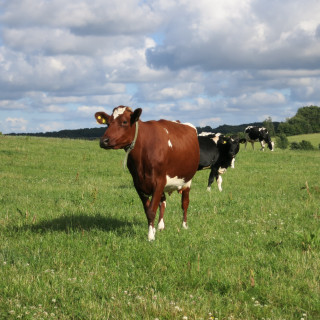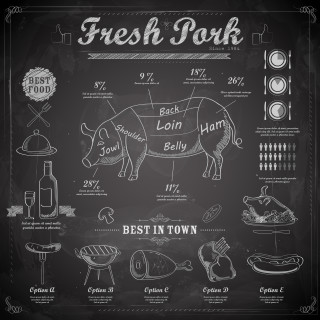Best before dates soon a thing of the past?
It is hoped that more dynamic food labelling could lead to less food waste. Professor of Packaging Fredrik Nilsson is leading the project.
One third of food bought is thrown away because it has passed its best before date. However, food waste could soon be cut with the help of new technology.
Researchers at Lund University, the Swedish Institute for Food and Biotechnology and Malmö University have received SEK 10 million in research funding from Vinnova to develop a dynamic system of date labelling for food. New sensors in packaging can provide information about temperature and bacterial growth, which makes it easier to determine whether or not a product is edible.
Fredrik Nilsson, Professor of Packaging Logistics, is in charge of the project and believes that as well as a drop in food waste, an increase in consumer confidence will be seen.
“Expiry dates will be more accurate and there will be less room for cheating”, he says.
Current legislation obliges food producers to label their products with a best before date. However, this labelling does not take into account the refrigeration of the product throughout its journey to the consumer. The product may pass through the hands of 15 different participants in the food production chain before it reaches a consumer’s fridge. The new dynamic technology checks a product’s temperature and bacterial growth along the logistical chain and the information is saved digitally in the ‘cloud’. With an app, both those involved in the supply chain and consumers can see changes in quality, and there is no need to guess whether or not a food product is still edible.
“We will discover that products keep longer than we thought”, says Fredrik Nilsson. “A lot of the products thrown away at the moment are fit for consumption, and half of this waste would be cut if quality could be determined directly”, he goes on.
Klara Båth, a researcher in microbiology at the Swedish Institute for Food and Biotechnology, adds that if the temperature in the production chain is lower than that on which the best before date is based, bacterial growth will be slower and the food will keep longer.
The project mainly focuses on meat, fish and dairy products, because these products have high economic value and high environmental impact.
“Once the technology has been developed further, it could also be used on other products, such as milk, poultry, and fruit and vegetables”, says Fredrik Nilsson.
Text: Jessika Sellergren
Published: 2014
Facts
-
Facts about the project
-
Also participating in the project alongside Lund University, the Swedish Institute for Food and Biotechnology and Malmö University are: Arla, Bergendahls, Bring, Bröderna Hanssons, Electrolux, Flextrus, GS1, IBM, Konsumentföreningen Stockholm, LUIS, Mobile Heights, Packbridge, SCAN, Sony Mobile, Svenska Retursystem and Tetra Pak.




